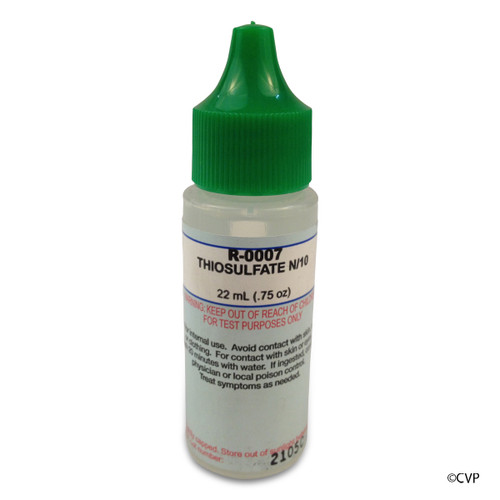Taylor | Reagents | Thiosulfate N/10, .75 oz, Dropper Bottle | R-0007-A-24
Thiosulfate N/10, .75 oz, Dropper Bottle
REAGENT SHELF LIFE
All reagents have a shelf life, whether they are liquids, powders, crystals, tablets, or test-strip pads. If kept dry, powders and crystals are very stable; acids are also long lived. Date of manufacture is not the controlling factor when it comes to shelf life—storage conditions are more important. As with all perishables, reagents are sensitive to environmental influences and will last longer under controlled conditions.
- Storing reagents at a consistent temperature in the range of 36°–85°F (2°–29°C); extreme temperature fluctuation, say from a refrigerator to a hot car trunk, causes reagents to deteriorate.
- Keeping them out of prolonged direct sunlight. (Note: their brown plastic bottles help protect very light-sensitive reagents.)
- Segregating reagents from containers of treatment chemicals.
- Replacing caps immediately and tightening them carefully so that exposure to air and humidity is limited.
- Avoiding switching bottle caps, placing bottle caps on soiled surfaces, repouring reagents into contaminated containers, or touching test strip pads.








